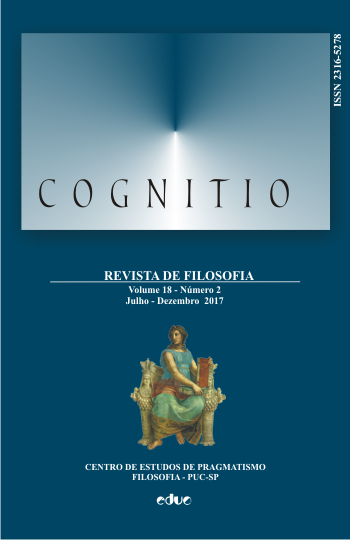The inductive reasoning in David Hume and Thomas Reid
DOI:
https://doi.org/10.23925/2316-5278.2017v18i2p243-258Keywords:
Hume, Reid, Induction, PrinciplesAbstract
This article seeks to present in a concise way the so-called Problem of Induction in David Hume and Thomas Reid. In Hume, one has the profound refusal that inductive reasoning is the result of a rational process. However, in Reid, apart from a refusal in a so-called rational process, there is the appeal to what he called the constitutive principles of the human mind. While Hume appeals to an epistemological skepticism in which he has become entangled, Reid chooses a different path in which the inductive reasoning stems from principles with which the human mind operates constitutively and originally. It is noteworthy that the use of a thinker like Reid in opposition to Hume was made, precisely because the contemporary Problem of Induction was the object of reflection and gave rise to different answers on the part of both philosophers.Metrics
Metrics Loading ...
Downloads
Published
2018-02-03
How to Cite
Pimentel, P. F. C. (2018). The inductive reasoning in David Hume and Thomas Reid. Cognitio: Revista De Filosofia, 18(2), 243–258. https://doi.org/10.23925/2316-5278.2017v18i2p243-258
Issue
Section
Cognitio Papers















